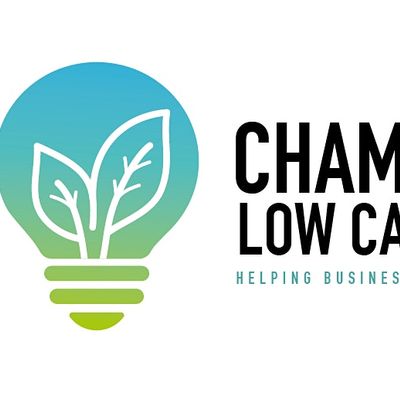
About this Event
Chamber Low Carbon, in collaboration with UCLAN, is offering a series of six fully funded sustainability workshops for businesses in Burnley, Blackburn with Darwen, Hyndburn, Lancaster, Pendle and Preston.
This is the third in a series of sustainability workshops, each session will cover different topics each time.
Return on investment
Securing a return on investment (ROI) in a carbon reduction plan requires a strategic approach that balances environmental benefits with financial gains. Here are some key steps to consider:
Prioritize high-impact, cost-effective initiatives:
• Identify low-hanging fruit: Start with readily achievable reductions like adjusting lighting schedules, optimising equipment settings, and switching to energy-efficient appliances. These often come with quick payback periods and minimal up-front costs.
• Target major emission sources: Analyse your operations and prioritise reducing emissions from your biggest contributors, like energy consumption, transportation, and manufacturing processes.
Quantify both costs and savings:
• Conduct a cost-benefit analysis: Estimate the initial investment needed for each decarbonisation project alongside the projected savings in energy bills, operational costs, and potential tax benefits. Tools like carbon accounting software can help.
• Factor in external benefits: Quantify the non-financial benefits, such as improved employee well-being, brand reputation, and access to green financing, to provide a more holistic picture of the ROI.
Explore additional revenue streams:
• Carbon credits: Generate and sell carbon credits earned through verified emission reductions. Investigate carbon markets and potential buyers to maximise this revenue.
• Product differentiation: Highlight your green initiatives to attract environmentally conscious customers and command premium pricing. Branding and marketing efforts can play a crucial role here.
Implement continuous monitoring and improvement:
• Track progress: Regularly monitor and measure your emission reductions compared to your targets. This allows you to adjust your strategies and identify further opportunities for optimisation.
• Embrace technological advancements: Stay updated on modern technologies and solutions that can accelerate your decarbonisation journey and enhance savings.
Additional tips:
• Engage stakeholders: Involve employees, investors, and other stakeholders in the plan to achieve buy-in and secure necessary resources.
• Set ambitious yet achievable goals: Define clear targets for emission reductions and communicate them transparently to maintain motivation and track progress.
• Leverage external resources: Seek external guidance from sustainability consultants, industry experts, and government programs to maximise your impact and chances of success.
Remember, securing ROI in a carbon reduction plan is not just about financial gains but also about contributing to a sustainable future. By adopting a strategic and comprehensive approach, you can achieve both environmental and economic benefits, demonstrating responsible leadership and creating long-term value for your organisation.
This is the third in a series of workshops. Further details of other Action Learning Sets below:
Session 4: Journey to Net Zero – planning and decarbonization strategies.
TUE 10th DEC| 9.00AM – 1.00PM
Blackburn College.
Session 5: Carbon Action Plan – understanding your carbon footprint, setting achievable goals and developing action plans.
TUE 14th JAN | 9.00AM – 1.00PM
Lancaster College.
Session 6: The Next Steps – implementing strategies, actioning and monitoring.
TUE 11th FEB | 9.00AM – 1.00PM
Burnley College.
Lunch will be provided
If you would like more information on the course content, please contact https://www.chamberlowcarbon.co.uk/contact/
These workshops are open to businesses in Burnley, Blackburn with Darwen, Hyndburn, Lancaster, Pendle and Preston.
Event Venue & Nearby Stays
University of Central Lancashire, Fylde Road, Preston, United Kingdom
GBP 0.00












